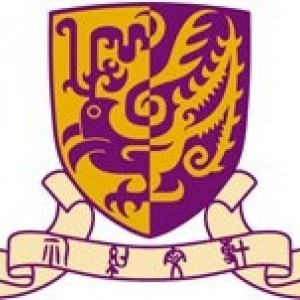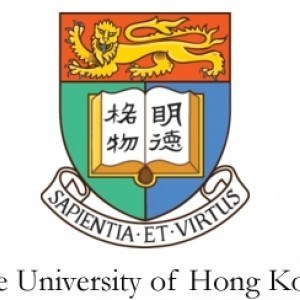Photos of university / #thechineseuniversityofhongkong
The Bachelor of Science in Biomedical Engineering at The Chinese University of Hong Kong is a comprehensive undergraduate program designed to equip students with an interdisciplinary foundation in engineering principles, biological sciences, and medical sciences. This innovative programme aims to prepare graduates for the dynamic and rapidly evolving field of biomedical engineering, which integrates technology and healthcare to improve patient diagnosis, treatment, and quality of life. Throughout the course of study, students will gain a solid understanding of core engineering concepts, including circuitry, signal processing, and biomaterials, while also developing expertise in biology, physiology, and medical sciences. The curriculum is designed to foster hands-on experience through laboratory work, industry projects, and collaborations with healthcare institutions, thereby bridging academic knowledge with practical application. Students will explore specialized topics such as biomedical imaging, rehabilitation engineering, biomaterials and tissue engineering, and medical device design, enabling them to innovate in medical technology development. The program emphasizes research skills, critical thinking, and problem-solving abilities, encouraging students to contribute to advancements in healthcare technology. Additionally, the program provides opportunities for internships and industrial attachments, facilitating pactical experience and professional development. Graduates of this programme will be well-prepared for careers in medical device industry, healthcare technology, biomedical research, or further postgraduate studies. The program also aligns with the university’s mission to foster innovation, leadership, and societal contribution, equipping students with the tools needed to make meaningful impacts in the biomedical field.
Each Ph.D. student is required to complete a minimum of 15 units of 5xxx graduate courses offered by the Division, or by other Divisions subject to the approval of the supervisor and Division Head. At least one faculty core courses must be taken. To satisfy the Faculty core course requirement, students must achieve at least a grade B in the course. Otherwise, the course will only be counted as an elective
- Advanced Medical Robotics
- Advanced Medical Devices and Sensor Networks
- MEMS and Nanotechnology for Biomedical Engineering
- Biomedical Imaging Processing
- Rehabilitation Engineering
- Principles of Biomechanics and Biomaterials
- Medical Visualization
- Mechanics of Biosolids: Growth, Adaptation, Degeneration and Regeneration
- Tissue Engineering
- Research Methods in Biomedical Engineering
- Advanced Algorithms for Bioinformatics
- Selected Topics in Biomedical Engineering
- Prosthetics and Artificial Organs
- Biomedical Informational Engineering
- Biophotonics
- Micromachining and Microelectromechanical Systems
- Smart Materials and Structures
Faculty Core Courses
- Advanced Computer Architecture
- Techniques for Data Mining
- Image Processing and Computer Vision
- Computer and Network Security
- Information Retrieval and Search Engines
- Big Data Analytics
- Advanced Artificial Intelligence
- Pattern Recognition
- Advanced Microwave Engineering
- Nanoelectronics
- Fiber Optics: Principles and Technologies
- Information Theory
- Random Processes
- Advanced Wireless Communications
- Applied Cryptography
- Lightwave System Techologies
- Advanced Robotics
- Linear System Theory and Design
- Micromachining and Microelectromechanical Systems
- Theory of Engineering Design
- Foundations of Optimization
- Matrix Analysis and Computations
For the advancement to his/her post-candidacy stage, each Ph.D. student is required to pass:
- At least 15 units of graduate courses,
- The Candidacy Examination,
- The thesis proposal defence,
- The IPL module on “General Safety”, and complete the IPL module on “Introduction to Research & Thesis Writing For Engineering, Medicine & Science”
Requirements
- An applicant can apply for PhD study even if he/she does not hold a research master degree. The normative period of study for articulated MPhil-PhD study is 4 years. Subject to satisfactory academic performance and research progress, postgraduate studentships will be provided to students throughout their normative period. However, holders of a research master degree from a Hong Kong UGC funded institution may only be eligible for a shorter normative period of 3 years for PhD study. An applicant can also apply for MPhil study with a normative period of 2 years
- Have a research Master degree from a recognized university in equivalent in a relevant engineering, science or medical discipline; OR
- Have a Bachelor degree, normally with Second Class Honours in the upper division or above; OR 3. have been registered as a Ph.D. student at a recognized university for at least one year, and have been approved for application by the affiliated Graduate School.
- TOEFL (Paper-based: 550; Computer-based: 213; Internet-based: 79); GMAT (verbal) (Band 21), IELTS (Academic) (Band 6.5);
Mandatory materials
- Complete online application
- Application fee of HK$300
- One photocopy of your HKID card or other identity document as given in the Application
- Original copy of official transcripts
- Original copy of official grading scheme issued by the University (if it is not listed on your transcript)
- Original copy of official English Tests score report (TOEFL/IELTS/GMAT)
- Two confidential recommendations
- Brief Curriculum Vitae
- Research / purpose statement (about 600 - 800 words in English, compulsory for PhD application)
- An information sheet to be filled in. It is a standard format specified by our department which essentially summarizes the personal information and academic qualification. It can be downloaded here (doc format).
Optional materials
- Personal statement
- Copies or abstracts of published papers or research project reports
- Certificates of awards or prizes
The Chinese University of Hong Kong offers financial aid options for students enrolled in the Biomedical Engineering undergraduate programme. These include scholarships based on academic merit, which are awarded to students demonstrating outstanding academic performance during their studies. Some of these scholarships are funded by the university, while others are provided by external organizations. Students are encouraged to apply for these scholarships upon admission and throughout their academic career, as eligibility criteria and application procedures may vary annually.
Additionally, the university provides government financial assistance schemes such as the Student Finance Office (SFO) loans, which help offset tuition fees and living expenses. These government support schemes are available to eligible students who meet specific income and resource criteria. For international students, financial aid options are more limited but may include scholarships aimed at promoting diversity and attracting talented students from around the world.
Apart from scholarships and loans, students may also explore external funding opportunities, including corporate sponsorships, research grants, and industry partnerships that support biomedical engineering research and internships. The university actively encourages students to seek these external resources to supplement their financial support.
Part-time work opportunities within the university are also available, allowing students to gain practical experience and earn additional income. Career placement services provided by the university can assist students in finding suitable part-time roles or internships related to biomedical engineering.
Overall, students enrolled in the Biomedical Engineering programme at CUHK have access to various financial support mechanisms designed to alleviate the financial burden of their studies and encourage academic excellence and research innovation in the field of biomedical engineering.
The Bachelor of Engineering in Biomedical Engineering at The Chinese University of Hong Kong is a comprehensive undergraduate program designed to equip students with a multidisciplinary knowledge of engineering principles, biological sciences, and medical technologies. The curriculum emphasizes the integration of engineering techniques with biological and medical sciences to develop innovative healthcare solutions. Students are introduced to core engineering subjects such as electrical, mechanical, and computer engineering, complemented by specialized courses in biomedical imaging, biomedical signal processing, biomechanics, biomaterials, and medical instrumentation. The program aims to foster a strong foundation in engineering design, problem-solving, and research, preparing graduates for careers in the biomedical industry, healthcare, and research institutions.
Students benefit from a combination of theoretical coursework, laboratory experiments, and project-based learning. The program encourages practical skills development through hands-on experience in modern laboratories equipped with cutting-edge technology. Throughout their studies, students are encouraged to engage in research projects, internships, and industry attachments to gain real-world exposure and develop professional competencies. The program also stresses the importance of interdisciplinary collaboration, ethical practices, and lifelong learning, vital in the rapidly evolving field of biomedical engineering.
The university offers state-of-the-art facilities and resources, including dedicated biomedical engineering laboratories, to support student learning and research. Students have opportunities to participate in international conferences, competitions, and collaborative projects with industries and healthcare providers. The program continuously updates its curriculum to incorporate advances in areas such as regenerative medicine, medical devices, biophotonics, and telemedicine, ensuring graduates are well-prepared for emerging challenges in biomedical sciences.
Graduates of the Bachelor of Engineering in Biomedical Engineering are equipped with the knowledge and skills necessary for diverse career paths, including biomedical device design, healthcare technology development, clinical engineering, and research. Alternatively, students may choose to pursue postgraduate studies or professional certifications to further enhance their expertise in biomedical sciences. The program’s strong emphasis on innovation and interdisciplinary research aligns with global trends in healthcare and technology, making graduates competitive in the international job market.


